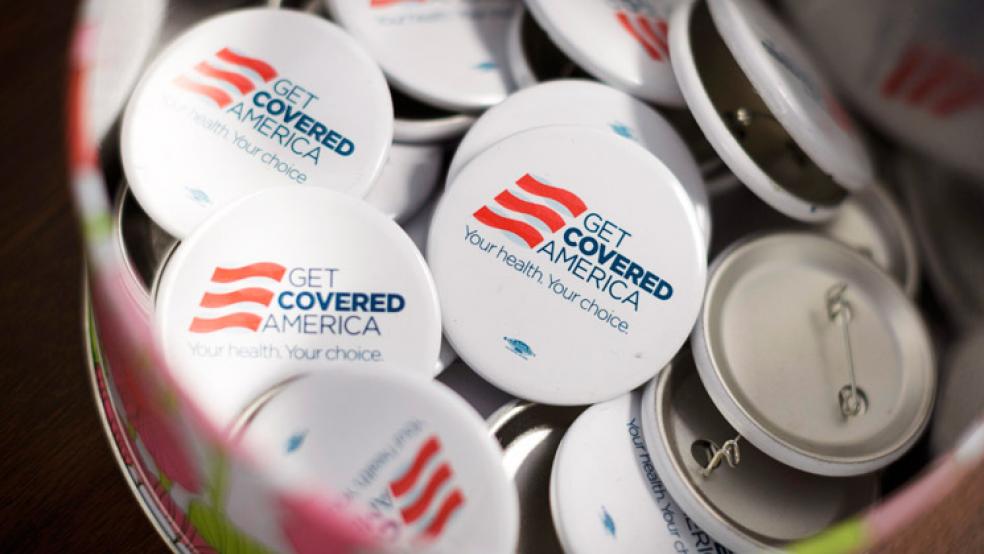The Affordable Care Act suffered another jolt late last week with the news that UnitedHealth Group, the nation’s largest health insurer, was making good on its threat to pull out of Obamacare, beginning with its operations in Georgia and Arkansas.
UnitedHealth roiled the market last November when it revealed that it was considering exiting Obamacare after incurring hundreds of millions of dollars in losses related to ACA business. Then UnitedHealth CEO Stephen Hemsley confessed to investors meeting in New York in December that the company should have stayed out of the program a little longer to better gauge its profitability potential.
UnitedHealth CEO: Joining Obamacare Was a ‘Bad Decision’
The company had cautiously tiptoed into the market in January 2015 after sitting out the first full year of Obamacare operations in 2014. “It was for us a bad decision,” Hemsley admitted to his investors. “In retrospect, we should have stayed out longer.”
So it wasn’t a huge surprise on Friday when UnitedHealth spokesperson Tyler Mason confirmed to The Washington Post that the company, indeed, was pulling out of Georgia and Arkansas, two relatively small states that proved to be highly unprofitable terrain for the company.
This development is troubling, especially if it UnitedHealth pulls out of other bigger states, or if other major insurers such as Aetna and Anthem follow suit. But experts have cautioned not to make too much of UnitedHealth’s flight from the market. While it is one of the largest insurers on the national scene, UnitedHealth nonetheless is a bit player in Obamacare and holds a much smaller market share than other rivals like Aetna and Blue Cross Blue Shield.
In Georgia, for example, UnitedHealth last year had a market share of only 4.47 percent of the health maintenance operation ACA business, according to the Los Angeles Times, while Aetna, Anthem Blue Cross Blue Shield and Humana together claimed 90 percent of the overall market. Although detailed figures for Arkansas were not available, presumably it is a similar story there.
Related: Obamacare’s Bait and Switch Has Left Consumers Scrambling in 2016
United Health and Aetna both reported losses last year after the companies badly underestimated the cost of providing health care insurance to many individuals who turned out to be older and sicker than they had anticipated. UnitedHealth generally enrolled consumers with better health than the overall exchange population, according to Hemsley, but it still lost money.
UnitedHealth declined to speculate on Friday whether it would discontinue its Obamacare operations in other states, although it seems likely that more closures will follow. United Health is among dozens of insurers that sell coverage to millions of Americans in marketplaces established by the states or the federal government that provide federal subsidies to low-income people.
“As with any new market, we expect changes and adjustments in the early years with issuers both entering and exiting states,” Aaron Albright, a spokesperson for the Centers for Medicare and Medicaid Services, which operates Obamacare, told the Washington Post. “The marketplace is a reliable source of coverage for millions of Americans with a robust number of plan choices.”
Related: Uninsured Rate Hits New Low, but Obamacare’s Still a Hot Potato
UnitedHealth’s decision to pull back in Georgia and Arkansas beginning next year comes just days after a new Gallup survey documented a sharp decline in the rate of Americans who are still without coverage. Despite its rocky performance during its first two full years of operation – including higher than anticipated premiums and copayments and lower enrollments than projected – the ACA, along with expanded Medicare, clearly has been a boon for the nation’s uninsured.
About 12.7 million people enrolled in Obamacare this year, including about 587,800 in Georgia and 73,600 in Arkansas, according to government figures. U.S. uninsured rate fell nearly one percentage point to 11 percent during the first three months of this year. That marked the lowest uninsured rate in eight years, according to Gallup.





